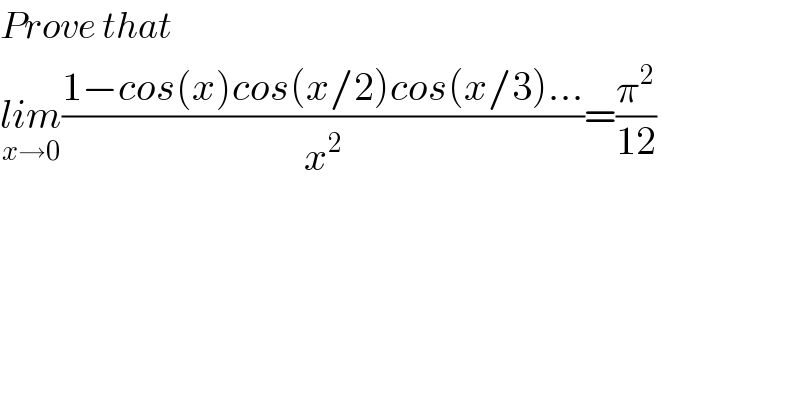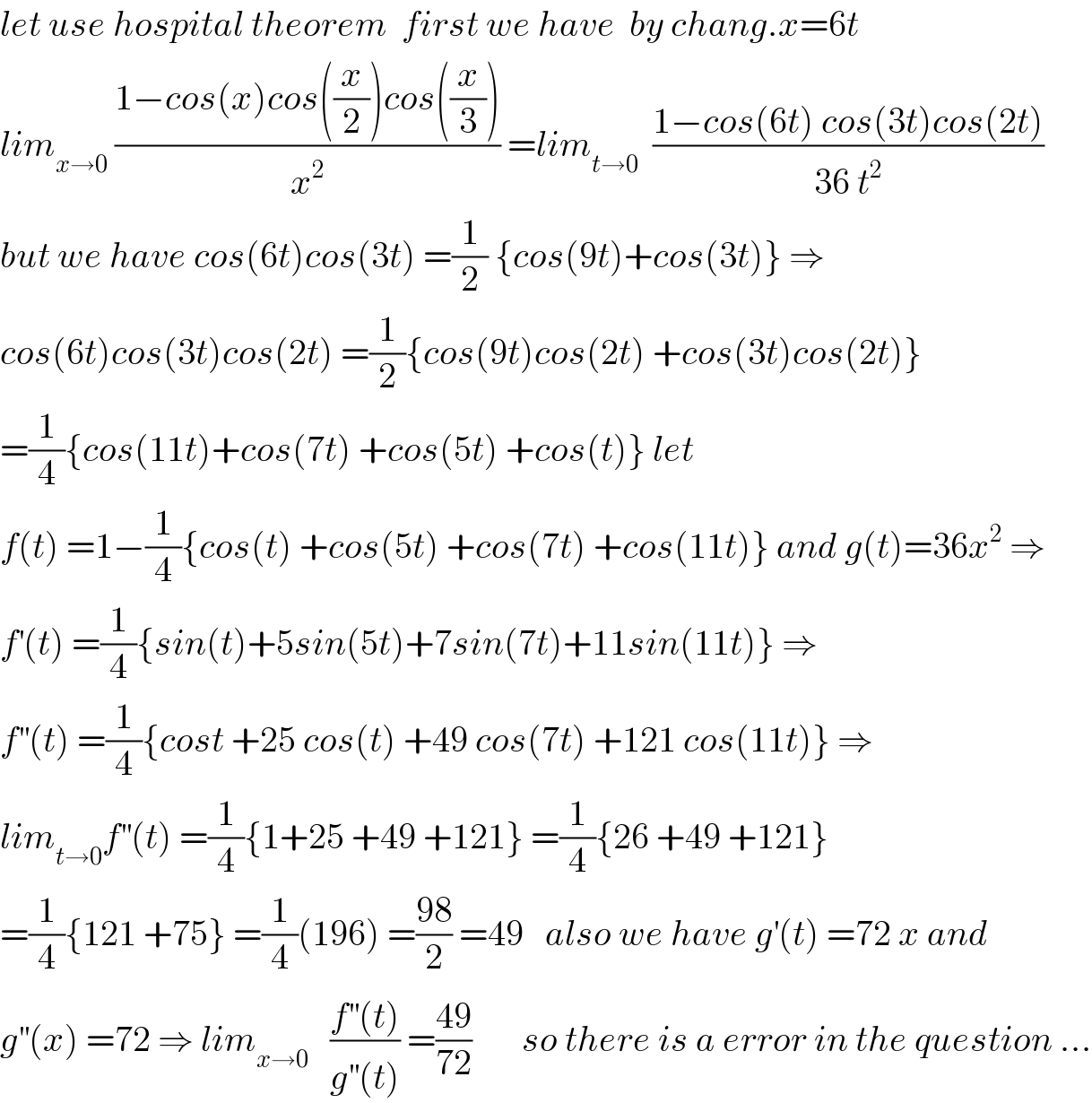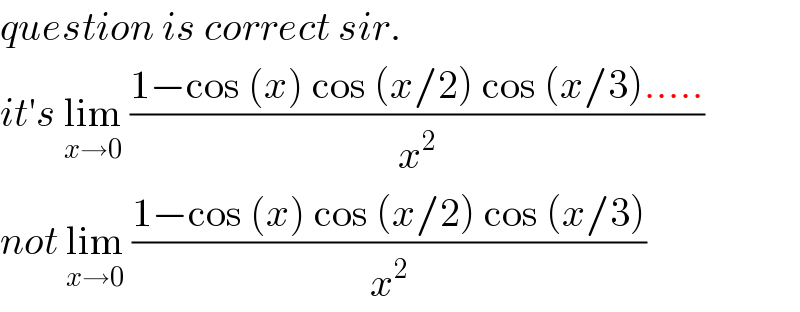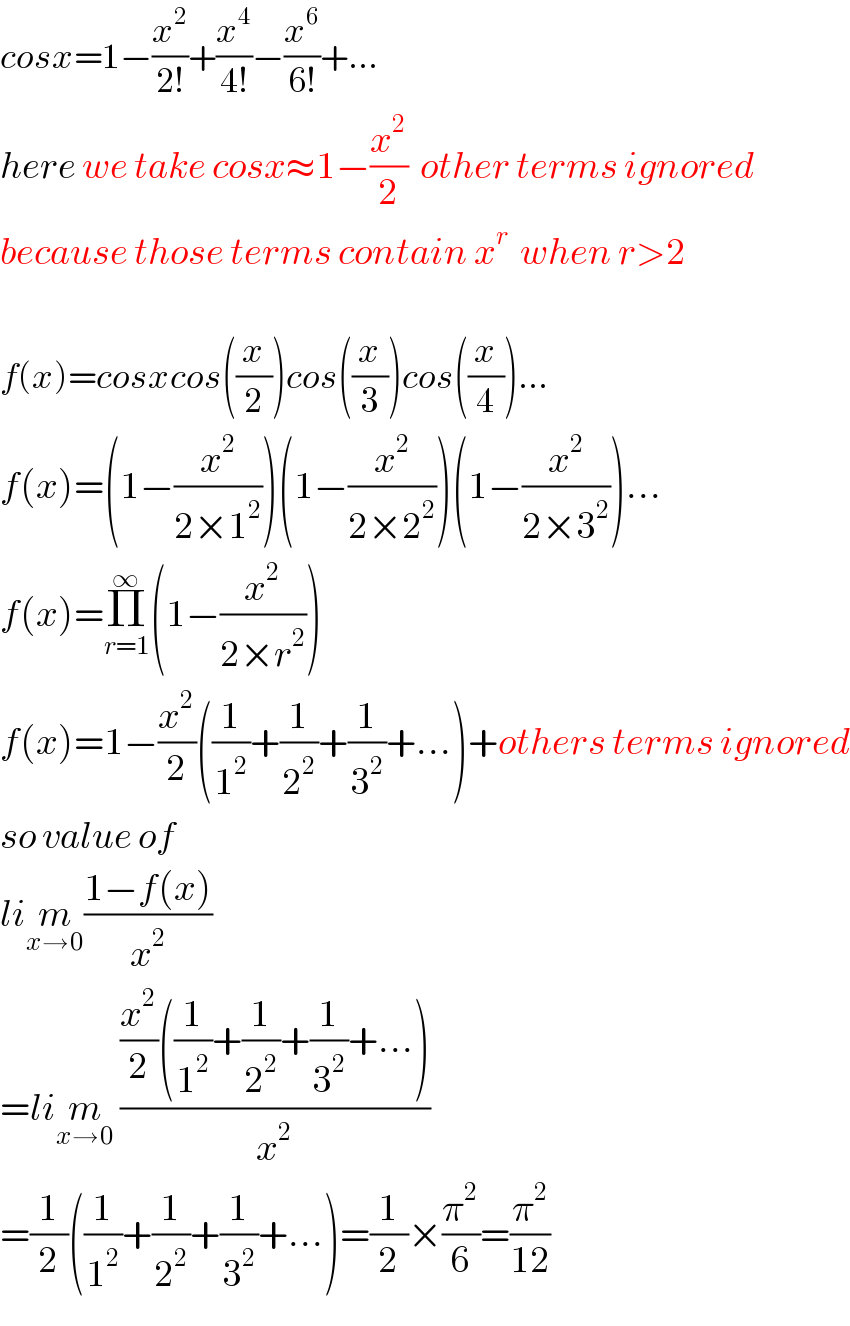
Question and Answers Forum
Question Number 58309 by Smail last updated on 21/Apr/19

Commented by maxmathsup by imad last updated on 21/Apr/19

Commented by mr W last updated on 21/Apr/19

Commented by Mr X pcx last updated on 21/Apr/19

Answered by tanmay last updated on 21/Apr/19

Commented by Tawa1 last updated on 21/Apr/19

Commented by tanmay last updated on 21/Apr/19

Commented by tanmay last updated on 21/Apr/19

Commented by Smail last updated on 21/Apr/19

Commented by tanmay last updated on 21/Apr/19

Commented by Tawa1 last updated on 21/Apr/19

Commented by peter frank last updated on 21/Apr/19

Commented by maxmathsup by imad last updated on 22/Apr/19

Commented by Tawa1 last updated on 22/Apr/19

Commented by Smail last updated on 22/Apr/19

Answered by mr W last updated on 21/Apr/19
![let f(x)=cos (x) cos (x/2) cos (x/3) ... lim_(x→0) f(x)=1 ln f(x)=cos (x)+cos (x/2)+cos (x/3) ... ((f′(x))/(f(x)))=−sin (x)−(1/2)sin (x/2)−(1/3)sin (x/3)−.... f′(x)=−f(x)[sin (x)+(1/2)sin (x/2)+(1/3)sin (x/3)+....] lim_(x→0) f′(x)=0 f′′(x)=−f′(x)[sin (x)+(1/2)sin (x/2)+(1/3)sin (x/3)+....]−f(x)[cos x+(1/2^2 )cos (x/2)+(1/3^2 )cos (x/3)+...] =f(x){[sin (x)+(1/2)sin (x/2)+(1/3)sin (x/3)+....]^2 −[cos x+(1/2^2 )cos (x/2)+(1/3^2 )cos (x/3)+...]} lim_(x→0) f′′(x)=1×{[0+0+0+...]^2 −[1+(1/2^2 )+(1/3^2 )+...]}=−(1+(1/2^2 )+(1/3^2 )+...)=−(π^2 /6) lim_(x→0) ((1−cos(x)cos(x/2)cos(x/3)...)/x^2 ) =lim_(x→0) ((1−f(x))/x^2 ) (=(0/0)) =lim_(x→0) ((−f′(x))/(2x)) (=(0/0)) =lim_(x→0) ((−f′′(x))/2) =(1/2)(1+(1/2^2 )+(1/3^2 )+...) =(1/2)×(π^2 /6) =(π^2 /(12))](Q58327.png)
Commented by tanmay last updated on 21/Apr/19

Commented by Mr X pcx last updated on 21/Apr/19

Commented by tanmay last updated on 29/Apr/19
![f(x)=cosxcos((x/2))cos((x/3))... lnf(x)=ln(cosx)+lncos((x/2))+lncos((x/3))+... ((f^′ (x))/(f(x)))=−[tanx+(1/2)tan((x/2))+(1/3)tan((x/3))+...] sir pls check...](Q58759.png)
